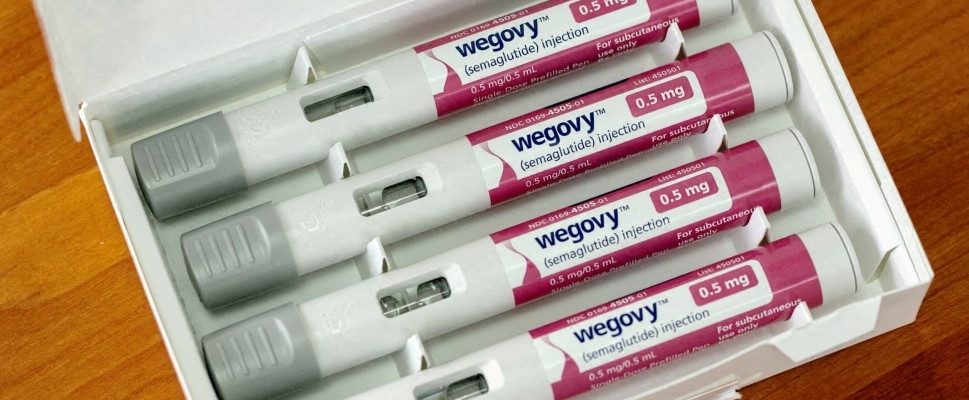Lose a lot of weight in a short time and in a very uncomplicated way: for many Germans that sounds tempting. The Danish pharmaceutical company Novo Nordisk cannot satisfy the demand for its weight loss syringe Wegovy. A few weeks after the market launch in Germany, the demand clearly exceeds the available quantities, according to the Noweda pharmacists’ cooperative. “The limited availability of Wegovy is not a regional but a nationwide problem,” said a spokesman for the company. The pharmaceutical dealers Phoenix and Sanacorp also reported shortages. For some dosages, orders exceeded the manufacturer’s delivery quantities many times over, Sanacorp said.
Wegovy is a prescription weight loss and weight maintenance drug. Doctors have been able to prescribe it to patients in Germany for a good four weeks now, and pharmacies can then also order it from wholesalers. The preparation is primarily intended for adults with a body mass index (BMI) of 30 or more, i.e. obesity. BMI is calculated from height and weight. For example, a man who is 1.80 meters tall and weighs 100 kilos is just over the 30 mark. In the EU, Wegovy is also approved for overweight adults with a BMI of 27 or more who have at least one weight-related comorbidity. It can also be used by obese young people aged 12 and over with a body weight of at least 60 kilograms. The interest in the weight loss injection is also enormous among people who are not overweight – fueled by some celebrity statements. Novo Nordisk already speaks of hundreds of thousands of users.
Urgent cases first
The obesity specialist and surgeon Thomas Horbach, who practices in Munich, has scoured many pharmacies in the area for the drug in the past few weeks – without success. According to the Helios St. Elisabeth Clinic in Oberhausen, their patients have received Wegovy so far, but they should have knocked on the door of a number of pharmacies. When it was launched in Germany in July, Novo Nordisk urged doctors to really limit the prescription drug to patients with an urgent need, as delivery problems could not be ruled out.
In the United States, where the drug was first launched, Novo has recently restricted shipments of starting doses to new customers because the company cannot ramp up production fast enough there either. Whoever starts with it must inject Wegovy regularly at weekly intervals with gradually increasing doses so that hunger does not return.
According to a study in New England Journal of Medicine with a total of almost 2000 participants, Wegovy subjects had lost an average of 15 percent after 68 weeks. The comparison group only achieved a loss of a good two percent with a dummy drug. Experts clearly advise against use by people of normal weight who, for example, want to get rid of a few love handles before a beach vacation. The relationship between benefit and risk is then wrong. “A conscientious doctor would not prescribe the drug to people of normal weight,” said Jens Aberle, President of the German Obesity Society. There is also the risk that the sick will find it harder or impossible to get their medication if there is an excessive demand for it from healthy people.
Despite the costs of 170 to more than 300 euros per month to be borne by the legally insured patients themselves, companies expect an enormous demand from people who want to combat fat deposits that are less problematic from a health point of view with medication. However, the market launch in Germany is controlled and limited, said a spokeswoman for Novo Nordisk. Wegovy is continuously delivered to wholesalers, and the pharmaceutical company has no influence on further distribution to pharmacies.

